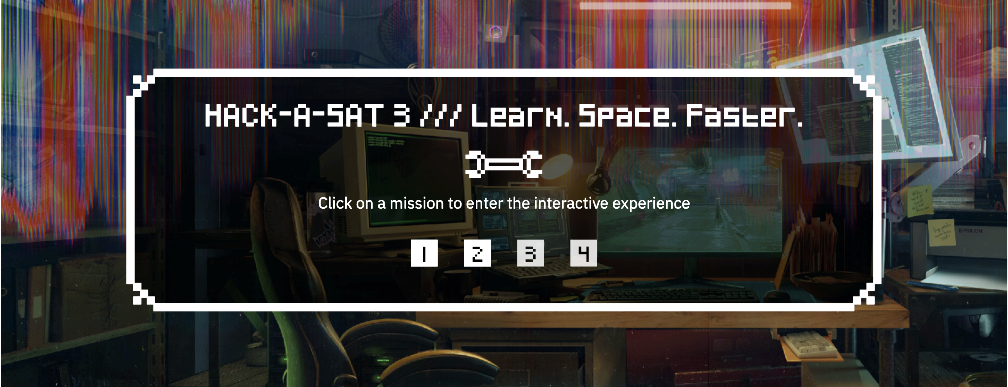
The third annual Hack-A-Sat qualification round occurred virtually May 21-22, with more than 800 teams and 2,500 individual security researchers working through a set of space-related cybersecurity challenges for a chance to win cash prizes and entry into the final event.
Organized by the U.S. Air Force and U.S. Space Force, along with space and cybersecurity partners, Hack-A-Sat 3 is an opportunity for a global community of security researchers to hack and learn in an open and collaborative online environment with the goal of improving the security and resilience of space systems.
Qualification Round
Successful teams during the qualification round brought diverse skills from the cyber and space domains, including reverse engineering, forensics, cryptography, satellite communications, space system architectures, quaternions, and orbital mechanics. The following top eight teams from the qualification round have earned their spot in the final event:
- Poland Can Into Space – Poland
- perfect blue – USA
- WeltALLES! – Germany
- Solar Wine – France
- SingleEventUpset – USA
- 0rganizers – Switzerland
- Samurai – USA
- SpaceBitsRUs – USA
These finalists include several returning teams from past years’ Hack-A-Sat events, including Poland Can Into Space, WeltALLES!, SingleEventUpset and Samurai, as well as last year’s final event winning team, Solar Wine. The top 10 highest scoring teams each receive a qualification event cash prize of $10,000, while the top 40 highest scoring teams receive non-cash prizes.
“Once again, we witnessed another amazing turnout for this year’s qualification round,” said Brig. Gen. Timothy A. Sejba, program executive officer for Space Domain Awareness and Combat Power; and PEO for Battle Management Command, Control and Communications, Space Systems Command. “This event brought together some of the best hacking talent in the world to solve unique challenges in hopes of making it to the Hack-A-Sat 3 (HAS3) final event. Hack-A-Sat continues to push the envelope in hopes of making space more cyber secure.”
The Hack-A-Sat 3 final event will take place virtually on October 22-23 and will include an attack/defend style capture-the-flag (CTF) competition that uses digital, twin technology to closely simulate real space hardware and software. The event will award cash prizes to the top three placed teams as follows:
$50,000 first place
$30,000 second place
$20,000 third place
Organizers plan to host next year’s Hack-A-Sat 4 as the world’s first CTF hacking competition in space. Rather than a physical flatsat or a virtual digital twin, Hack-A-Sat 4 will use an on-orbit satellite named Moonlighter, which is currently being designed and built to advance the cybersecurity community. Moonlighter is scheduled to launch on an International Space Station (ISS) resupply mission in the summer of 2023.
Hack-A-Sat organizers will be bringing a mixture of workshops, talks and demonstrations to the Aerospace Village at DEF CON from August 11-14 in Las Vegas, Nevada. These contributions are intended to support and generate budding interest in the hacker community across the aerospace security domain.
The Air Force Research Laboratory (AFRL) is the primary scientific research and development center for the Department of the Air Force. AFRL plays an integral role in leading the discovery, development and integration of affordable warfighting technologies for our air, space and cyberspace force. With a workforce of more than 11,500 across nine technology areas and 40 other operations across the globe, AFRL provides a diverse portfolio of science and technology ranging from fundamental to advanced research and technology development.
Space Systems Command, headquartered at Los Angeles Air Force Base in El Segundo, California, is the U.S. Space Force’s field command responsible for rapidly developing, acquiring, equipping, fielding and sustaining lethal and resilient space capabilities. SSC mission capability areas include launch acquisition and operations, communications and positioning, navigation and timing, space sensing, battle management command, control and communications, and space domain awareness and combat power.